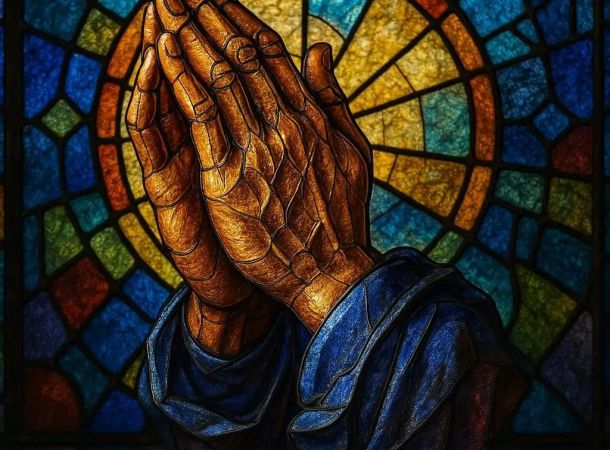Walk This Way
Abraham, the Father of Faithfulness, was tested in the same ways God tested Israel and describes a journey we all take. Many types of adversaries grace each Torah Portion; however, you should be able to find a common thread that none of them are celestial or otherworldly.
Lech Lecha, the Torah Portion from last week, encompasses Genesis 12:1-17:27. The phrase ‘Lech Lecha’ can be interpreted as ‘Go forth, go with yourself, or go to yourself.’ It symbolizes the courageous journey that Abraham embarked upon when he left his familiar and comfortable home to heed the call of God into the unknown. This journey is not just a physical one, but a spiritual one, where Abraham was called to discover his true self and his true purpose in God’s plan.
Israel and Abraham descended into Egypt because of famine (Gn 12.10 & Gn 47.4). God delivered Abraham’s wife and His wife, Israel, from Pharaoh’s house through plagues (Gn 17 & Ex 4-12). Like Abraham, Israel left Egypt with riches (Gn 12.16 & Ex 12.35-36). There is familial strife between Abraham and Lot, and Israel follows suit with the conflict between Miriam, Aaron, and Moses (Gn 13.8 & Nm 12.1). Five kings, including Tidal, the king of the nations, ascended upon Sodom, where Lot, Abraham’s nephew, lived and took them captive. King Amalek, the firstborn of the nations, attacked Israel. So, both Abraham and Israel had to battle with the kings of the nations. Abraham was afraid for his life when traveling through Egypt and Gerar, just as Israel feared dying at the Sea of Reeds (Red Sea) by the Egyptian’s hands and in the land of Canaan (Gn 13, 20 & Nm 13).
Whenever Israel faced an enemy, they often failed to establish faith. How did Abraham exhibit faithfulness? Abraham never depended upon them by setting up camp in Egypt, but Israel became enmeshed in the Egyptian way of life. When the kings of the nations took Lot captive, it did not look like Abraham spent two seconds thinking about what he would do; he took his small army and attacked it quickly and confidently. Israel did not do this when they came face to face with the nations of Egypt and Canaan; they said, “They look big and scary; we’re all going to die!” (my re-wording of Genesis 13 and Numbers 13.)
In recent discussions with friends, we’ve explored the distinction between fear and doubt. One of them pointed out that doubt can be beneficial if it strengthens our resolve to follow the voice of the Holy One. Did Abraham ever experience doubt or fear? As a human, the answer is likely yes. However, Abraham’s unwavering faith in God’s promises overshadowed any doubt or fear. This trust, coupled with obedience, is the essence of faith. When we obey God’s instructions, even in the face of fear and doubt, we affirm His word as truth and allow Him to demonstrate His sovereignty and faithfulness.
Like in the Garden of Eden and Noach, every re-creation story, such as the story of Abraham, comes with opposition in the form of the nations, sin inside the hearts of men, rebellion against the instructions of God, and familial strife, including greed, envy, and hatred. These re-creation stories, which depict the ongoing struggle between good and evil, are crucial in understanding the overarching narrative of the Bible. They are stories of God’s continuous work of redemption and restoration despite human failings and the presence of evil in the world, which humans devise and act out.
Genesis 22:18: ‘In your seed, all the nations of the earth shall be blessed because you have obeyed My voice.’
This verse underscores the profound impact of Abraham’s obedience, a testament to his unwavering faith and trust in God’s promises.
Galatians 3:16: Now the promises were spoken to Abraham and to his seed. It doesn’t say, “and to seeds,” as of many, but as of one, “and to your seed,” who is the Messiah. (bold accents added)
This verse connects Abraham’s faithfulness to the Messiah, the Seed. The Seed is the word of God (Lk 8.11), and when Abraham obeyed the word of God, he planted the seed that was to come that would fully bring the Kingdom of God to earth, Yeshua. The Kingdom of God, often misunderstood as a physical kingdom, is actually a state of being where God’s will is fully realized. Yeshua, by embodying the word of God, planted Himself into the earth when He died (Rv 19.13). The word of God produces the Holy Spirit, which is synonymous with the Kingdom of God. You can’t have one without the other. The Bible talks about the Kingdom of God being near when Yeshua was alive because the Divine Spirit was about to be unleashed. It was near, and it did arrive. We are actually living in the Kingdom of God whenever we, like Abraham, obey the voice of the Holy One.




Leave a Reply